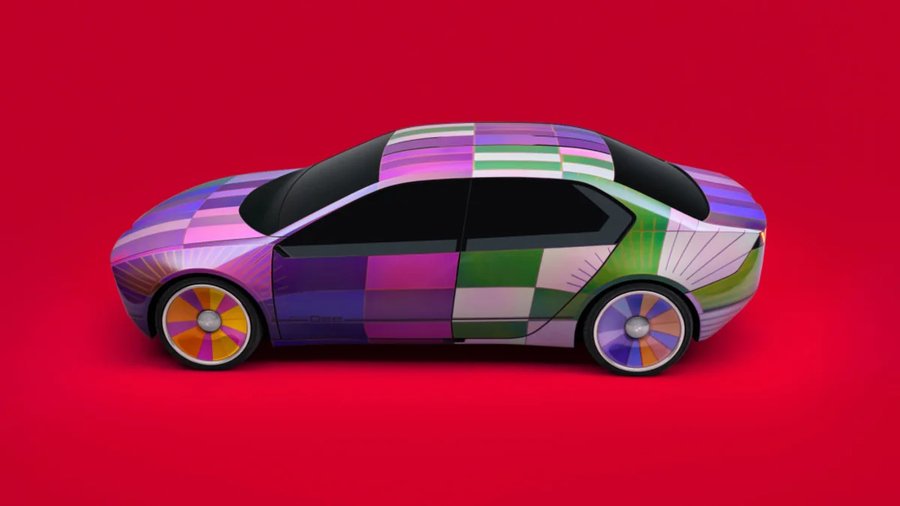Toyota seeks patent for chameleon color-changing paint

No one knows better than the folks who manufacture and market automobiles how crucial the choice of color is. Now, hoping to chase the concept of some of BMW’s technologies, Toyota is developing a method to modify their vehicles’ colors, chameleon-like, by using heat and light.
As initially spotted by USA Today, the technique has been in development for two years and Toyota last month filed for a patent with the U.S. Patent and Trademark Office.
The patent describes all cars with the paint leaving the factory with a single color, the color-changing material, in whatever default hue is chosen. Once at a dealer or other Toyota facility with the correct equipment, the color can be changed as desired. The method of which would include either large panels or even a movable panel that would heat the paint first, followed by applications of specific wavelengths of light. This whole process would allow the molecules in the paint to be shifted to reflect different wavelengths of light, creating different visible colors (similar to how "Structural Blue" on Lexus models achieves its color). Temperature sensors on the car would be employed in the process to help ensure the correct parameters are achieved for the right color.
Because these very specific conditions must be met for color changing, owners need not worry that if they drive their Camrys into Death Valley, they might shift from grey to hot pink.
At the Consumer Electronics Show in 2022, BMW showed a color-change concept known as E Ink on its iX electric SUV that was based on the electrophoretic technology used in e-readers. In that technology, the vehicle is wrapped, and an electric current causes pigments to pass through microcapsules, changing the exterior from white to gray to black, controlled by using an app on a mobile phone. Up to 32 colors could be displayed on 240 E Ink segments, each segment individually controlled.
Certainly, both these developments are conceptual now and not yet ready for prime time in a dealer’s showroom. But perhaps a hot pink Camry might not be bad.
Related News


